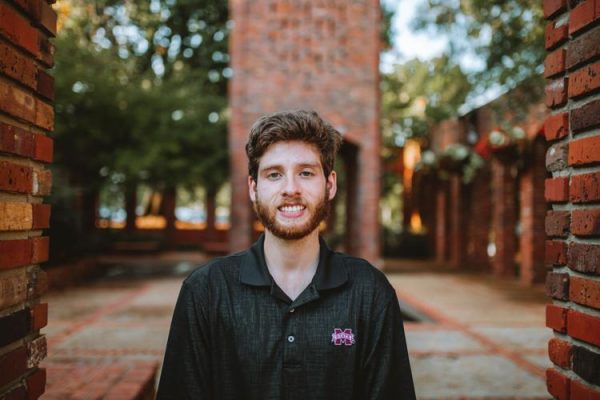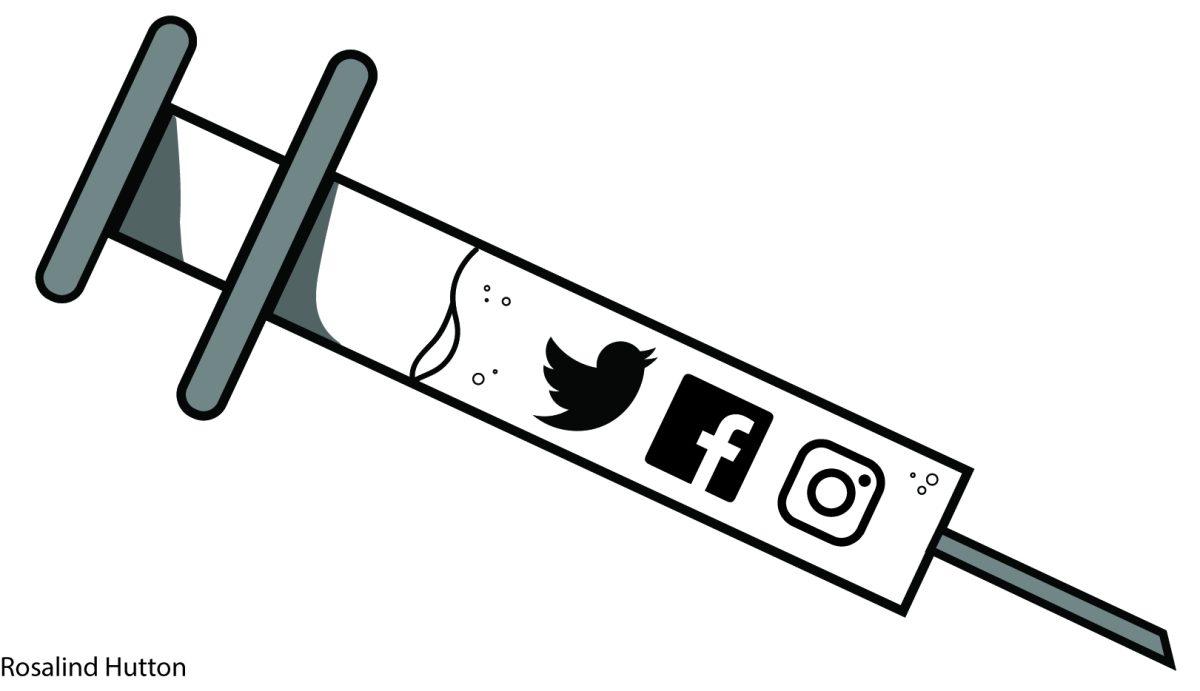As a point of disclosure, I did not have any social media beyond Snapchat until I joined The Reflector staff, where I got a Twitter and Facebook in 2018. My parents never let me set up social media accounts in middle school, and they heavily pressured me to still abstain from it in high school, once they trusted me to decide for myself. I did continue to abstain from it, but it was always more from laziness and as a source of some strange pride from being able to say I did not have an online presence. With a little over a year past from my venture into social media, I understand why my parents were so adamant about preventing me from joining my peers online.
Now, I do not want this to come off as some old-soul, “get off my lawn” complaining from some guy who thinks kids do not understand the concept of a book anymore, but rather, I want this to come off as a serious examination of what social media does to us and to the generations that will follow us. Plain and simple, I think social media is a mostly negative innovation of the digital age that has led to psychological and societal damage, and the unfortunate part is, there is no easy fix to the problem.
First and foremost, social media harms mental health by constructing bars by which to compare one’s self to. As reported by Kayleigh Lewis of The Independent, a study by the Pitt’s Centre for Research on Media, Technology and Health found young adults, ages 19 to 32, who used social media most frequently were also 2.7 times more likely to experience depression. The head of the project Dr. Brian Primack warns, being a cross-sectional study, the results could point to either social media causing depression or depressed people using more social media, but ultimately, the point still stands. Social media allows us to view curated versions of other people’s lives, and sometimes our brains cannot separate façade from fact.
These self-image issues are incredibly harmful to teenagers, even more so than to young adults. According to Leah Shafer with the Harvard Graduate School of Education, one study found 48% of teens who spend five hours a day or more on an electronic device have at least one suicide risk factor, as well as 33% of teens who spend two hours or more a day.
As clinical psychologist Lindsey Giller puts it, teens are “getting actual data on how much people like them and their appearance,” based off likes and follows.
Social media literally systematizes your existence and plainly tells you how much interest people have in you. One might ask what is wrong with their picture or tweet when they see others getting mounds of positive feedback, yet they are left adrift in a void of people only seeing and not interacting, with no answer as to why.
Speaking of systematized, let us talk about news on social media. As I am sure you have heard, 64.5% of the 2.4 billion social media users worldwide receive their breaking news from social media, as reported by Nicole Martin of Forbes. The unfortunate reality about social media’s personalization is one’s news becomes personalized, as well. If you do not want to hear about conflicting opinions, you can decide to only follow people or news sites that agree with you, creating a self-inflating bubble of tailored information which colors your reality.
These “news” sources gain success by feeding people’s desire to feel in the know, to feel like they understand the world better than everyone else, and when you only know the facts which confirm your position, the feeling of understanding the world seems certain, despite claims by others to the contrary. These phenomenon leads to concentrated, insulated groups of people who believe they are undeniably correct, whether or not they are, and our news consumption becomes a Swiss cheese of missing facts with many never wanting or trying to seek the whole picture. Hence, we see radicalized political groups unwilling to discuss points with the other side, and we are left with two galvanized ends of the political spectrum, talking past each other in a vacuum of self-affirming information.
To bring this altogether, let us talk about cocaine. Cocaine was seen a miracle drug when it was first popularized, so much so that it was in the original recipe for Coca-Cola. There was cocaine gum, cocaine wine, intravenous cocaine and old-fashioned powdered cocaine, but if you look around today, these things either do not exist or are simply illegal. Why is that? It is because we recognized cocaine was, outside of some infrequent medical uses, extremely harmful.
Social media is the cocaine gum of our day, and the analogy is more apt than you think. According to Simon Parkin with The Guardian, founding President of Facebook Sean Parker admitted that facebook exploited a “vulnerability in human psychology,” and Silicon Valley has not been shy in trying to use dopamine to get social media users hooked.
Not to say social media is only harmful, I am saying social media is in a laissez-faire state right now in our culture, and this needs to change. We cannot regulate people’s usage of social media, just like we cannot outlaw alcohol, but we can have campaigns to spread awareness of negative side effects which accompanies social media.
Hopefully, we will regulate social media companies into addressing its continued inaction on rampant false information presented as fact on their platforms, but ultimately, we cannot put this genie back into the bottle. It is up to our generation to push for awareness of how damaging social media can be, and just like anything in this world, moderation is the best course of action.
Social media is the modern drug
About the Contributor

Dylan Bufkin, Former Editor-in-Chief
Dylan Bufkin served as the Editor-in-Chief of The Reflector from 2020 to 2021.
He also served as the Opinion Editor from 2019 to 2020.


























































































